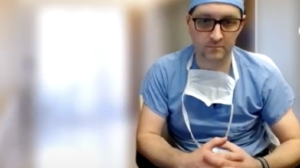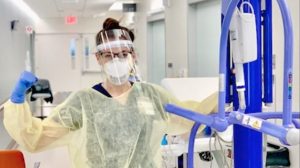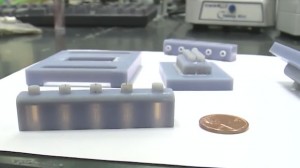NEW YORK (Reuters Health) – Using hypertonic saline with nebulized epinephrine instead of normal saline does not improve the clinical outcomes of infants in the ER with mild to moderate bronchiolitis, new research shows.
The investigators, led by Dr. Simran Grewal at the University of Alberta, Edmonton, Canada, had theorized that by absorbing water from the submucosa, hypertonic saline could decrease edema and improve mucociliary function.
To investigate, they randomized 46 infants younger than 12 months to receive nebulized racemic epinephrine in either 3% hypertonic saline or normal saline.
The main endpoint was the change in respiratory distress, as determined by the Respiratory Assessment Change Score (RACS) from baseline to 120 minutes, according to the report in the Archives of Pediatrics and Adolescent Medicine for November.
The mean change in RACS fro the hypertonic saline group was 4.39, not significantly different from the mean of 5.13 seen in the control group. Likewise, the corresponding changes in oxygen saturation were also comparable, -0.44 and 1.34.
Eight of 23 hypertonic saline patients were admitted to the hospital compared with 13 of 23 control infants, but this difference was not statistically significant. Three babies in the hypertonic saline group and 4 in the control group returned to the ER.
While the findings suggest there is no benefit to hypertonic saline, the authors believe more studies are warranted.
“As this is the first study with hypertonic saline in the emergency setting and the first negative study, the need for further research is clearly evident to determine whether hypertonic saline does, in fact, have a role in the treatment of bronchiolitis in the emergency department setting.”
They note as well that their experience “differs from previously published results of outpatient and inpatient populations.”
Reference:
Arch Pediatr Adolesc Med 2009;163:1007-1012.




